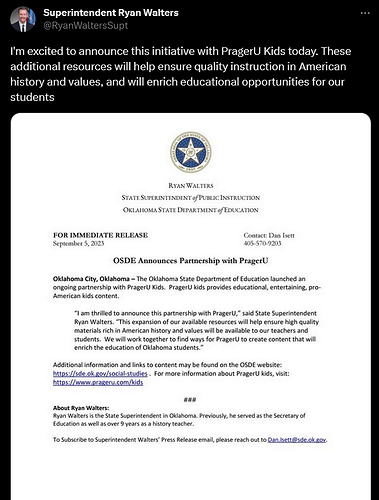I learned Michigan’s president is named Santa.
99% of all students lack intellectual curiosity.
MBA students are probably the least likely to gaf about anything unrelated to moving dollars into their accounts
I did undergrad and graduate business school. Undergrad was because I didn’t know what I wanted to major in and had to register for sophomore year classes. Needed to figure something out. One of my friends was applying for the undergrad business school, so I did, too. I focused on management information systems, so business (accounting, finance, marketing, etc.) plus computer science-lite. It was cool. I enjoyed it just fine. Ended up in consulting.
Got my MBA because I had been laid off when the tech bubble popped in 2001 and decided to try a career change. No other grad schools made sense and I had taken the GMAT my senior year in college just in case.
I did enjoy my two years and was at a school that fit my personality well. I certainly met some cool people, but there were a lot whose sole purpose was to network and get a career in generic business school careers like investment banking, brand marketing, etc. They were the annoying ones. The kinds whose mantra was basically, “it’s not personal, it’s just business,” which was frustrating to me. The people whose solution to every Harvard case study was to save money by cutting jobs.
My dad and brother did business school while I did engineering. They are much more successful than me.
I don’t think business school teaches you much. The main value is the connections you make and the opportunities that are presented to you. I’m not sure you actually learn that much that isn’t obvious.
I know some smart folks who have gone to business school and they saw it as I described above. They were intellectually curious in a lot of ways, but they realized that business school was a lot of dumb busy work and so they just went through the motions while most of their energy and attention was directed to other pursuits (e.g. often they were working at a reasonably demanding job while in school).
Business degrees in economics, information systems, and accounting are usually no walk in the park at a reputable university. Finance probably several tiers below that and then management / marketing at the bottom. I don’t buy the argument that there’s little to learn that isn’t obvious. I tried to take the most difficult courses and almost none of it was obvious. For example, everyone complained about operations management but it was one of the most useful courses I’ve ever taken. We had a dozen econ majors when I graduated compared to hundreds in management and marketing, and the reason seemed obvious to me: most students were trying to avoid challenging courses.
The MBA is a “revenue producer.” That’s an exact quote from MBA faculty and department chair at an R1. It makes much more sense viewed that way because it certainly doesn’t make much sense viewed as a scholastic product. Maybe it’s useful for people with no formal business education who want to transition from, say, software engineer to management? Seems more like a career advancement tool by means of signaling / networking / placement from the student’s perspective and I don’t think intellectual curiosity is generally part of that equation.
I was thinking about finance and management in my post above. Probably should have been clearer about that.
This tracks, considering the area.
As someone with 3 kids likely to enter college in the next 5-7 years (including one next year), this was a big surprise:
The calculated expected family contribution (which determines how much aid you get) will no longer consider whether the student in question has siblings for whom you are also paying college costs.
Apparently this was part of legislation passed in 2021, but I’m only just now realizing it:
It turns out that college costs suck even more than I had expected. (And I had expected them to be very very sucky.)
Sandy Baum, a nonresident senior fellow at the Urban Institute, said she understood the financial strain that families might feel when multiple children were in college. But given that college costs are now paid by saving and borrowing over a decade or more, she said, it doesn’t make sense to give, essentially, a bonus to families just because they have two children attending college simultaneously.
“There’s no reason why a family with twins should get more money,” she said. “It’s not fair to families with different spacing” of children.
That may be “small consolation” to families affected by the elimination of the sibling break, Mr. Draeger acknowledged. “I don’t want to be callous,” he said, yet the result of the policy change is a formula that “treats families in similar circumstances more equitably.”
Eliminating the sibling bump also makes it possible to create a simple chart that families can check to see if they qualify for Pell grants, according to a statement from the association. Factoring in the number of students in college would have made it “unworkable,” it said.
I’m not sure how I feel about that. I guess it makes sense from a kind of perspective, but paying for two kids at once is a different situation than paying for kids who go to college one after the other.
If I abstract away from my own situation, I end up thinking about the same as you. Sure, timing differences can mean that (under the old system) someone with twins pays less than someone with two kids born several years apart. Maybe that’s not fair. But it’s a very real financial crunch when you have two kids in college at the same time.
And it’s not like this kind of timing issue is absent in other settings. Earn $50k in one year and $250k in another year, and tell the IRS it’s unfair that you’re paying a higher overall rate just because of this same timing issue.
It only makes sense from the perspective that poor people are conniving bastards trying to take advantage of the government. It certainly doesn’t make sense from the perspective of getting more kids into college. The same government that is probably going to start offering incentives for bigger families is also going to punish those families for wanting send their kids to college.
Holy shit, thats a huge nerf
Dartmouth is moving back to requiring SAT or ACT scores from all applicants.
Although a lot of people complain about this, I think it’s the right move. Yes, these tests can be biased and yes wealthy kids have the advantage of private tutors and multiple retakes, but what’s a better alternative? Placing greater weights on hard-to-land research assistant experiences or non-paying internships that only wealthy families can afford to take advantage of?
Just get more aid for each incremental child would fix that better. The kids can thunderdome it out if they are in the same year.
This is absolutely the right move. I’d rather there only be a test to get into college than there be no test. Afaik that’s a more common approach throughout the world. Grades and a subjective application depend on social trust and fuzzy standards–it leads the powerful to cheat and while regular smoes compete.
I also am for it.
The most interesting thing about the article is that apparently some (presumably disadvantaged minority) applicants took the SAT and intentionally didn’t send the score to Dartmouth because they thought it was not good enough. Dartmouth is saying that some of these kids would have gotten in if they had just submitted their scores (i.e., they would have been good enough), but instead they got rejected since Dartmouth didn’t have quite enough evidence that they could cut it at Dartmouth.
So this SAT optional policy basically fucked some of the very kids it set out to help.

